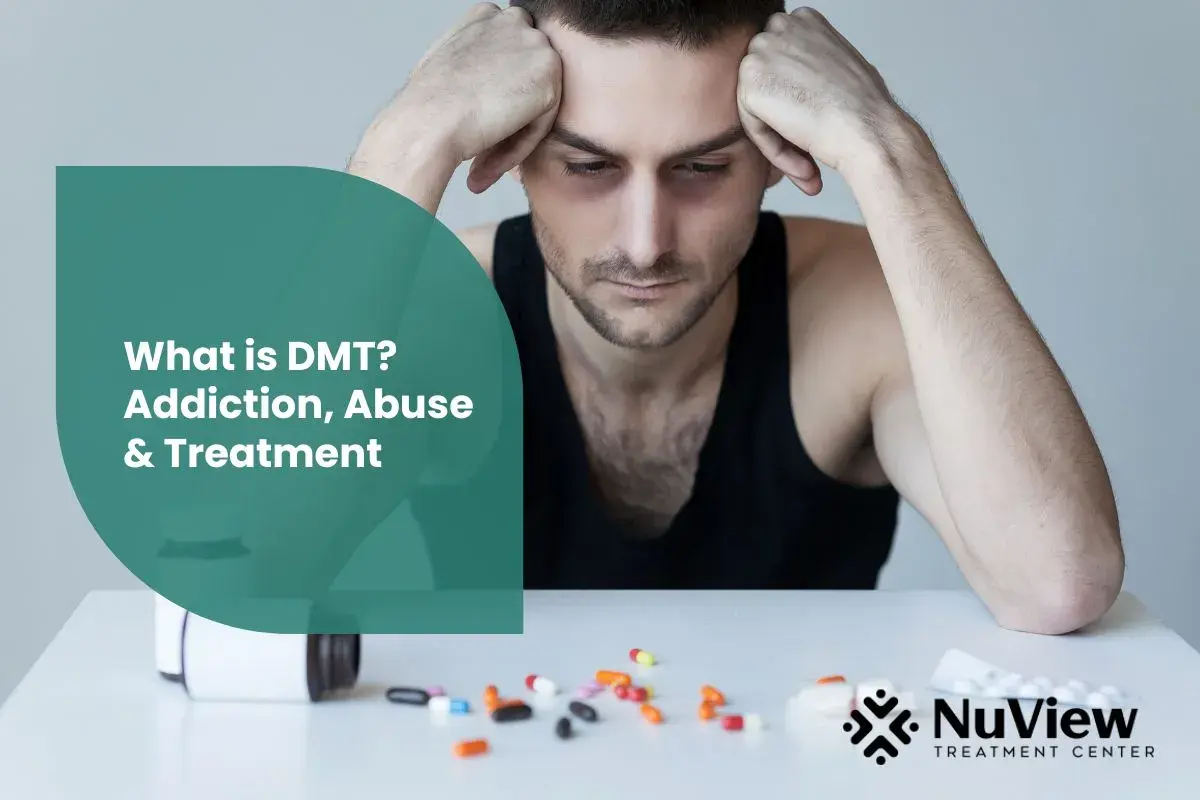The comedian George Carlin once said, “Eventually, alas, I realized the main purpose of buying cocaine is to run out of it.”
We think this quote perfectly sums up cocaine in one line. This powerful central nervous system (CNS) stimulant is famous (or infamous) for its short-lived high, energy-boosting, and hyperactivity effects. While it targets the brain’s reward center and gives rise to some extremely feel-good effects, what comes after is worse.
Cocaine comedown or a cocaine crash begins when the temporary pleasant effects of cocaine wear off and can be quite challenging to deal with. Unfortunately, to avoid a cocaine crash, people often binge on cocaine to keep these effects at bay. This can lead to misuse and dependence, which can lead to dangerous, life-threatening conditions. In this article, we will look into everything you need to know regarding a cocaine comedown - what you can expect, how you can deal with the symptoms, and other common queries.
What is a Cocaine Comedown?
A cocaine comedown, also known as a cocaine crash, is when the effects of cocaine begin to wear off. While sometimes compared to a hangover, cocaine comedowns lead to intense physical and psychological symptoms that are often more severe than those experienced after alcohol use.
What is worse is that to avoid a cocaine crash, most use higher quantities or even binge on cocaine to maintain its effects. While this may temporarily tackle the comedown, it can lead to cocaine misuse, dependence, overdose, and even death.
Cocaine-related deaths in the U.S. have more than doubled in recent years, rising from 6,784 in 2015 to 15,883 in 2019, according to the National Institute on Drug Abuse (NIDA). This alarming trend highlights the growing dangers pertaining to cocaine use and comedown management. Therefore, if you or a loved one is struggling with cocaine use, it can be life-saving to be aware of what a cocaine crash is and the varying risks it can lead to.
What Are the Cocaine Comedown Symptoms?
The physical effects of a cocaine crash are:
- Increased appetite
- Runny nose
- Headache
- Body aches and pains
- Tiredness
- Slowed bodily movements.
The mental effects of a cocaine crash are:
- Restlessness
- Low mood
- Angry outbursts
- Sleep troubles
- Vivid, disturbing dreams
- Mental fog
- Slowed brain activity.
Get Started With Nuview Treatment Center
Our dedicated professional staff is here to guide you or your loved one on the journey to lasting recovery, offering support every step of the way.
How Long Does a Comedown Last?
Typically, those who use cocaine will experience the first signs of a cocaine comedown within 1-3 hours after the last cocaine use. This can often lead to more cocaine use sessions, resulting in more severe cocaine comedown symptoms. Depending on how often one uses cocaine, the comedown can last for 3 days to even a few weeks or months after the last use.
Cocaine Comedown vs. Cocaine Withdrawal
Cocaine comedown can sound very similar to cocaine withdrawal, both of which begin after cocaine levels in the body begin to decrease. However, there are some differences in duration, intensity, and symptoms that we will look into here.
Cocaine comedown refers to the effects that begin after a single session of cocaine misuse. As cocaine's effects begin to wear off, the brain counteracts its stimulating effects, and the comedown symptoms begin within a few hours and can last for a few days.
Meanwhile, cocaine withdrawal is related to heavy, prolonged cocaine use. It is when someone who has used cocaine for an extended period of time abruptly stops using it. Cocaine withdrawal can last anywhere between a few weeks and a few months.
Cocaine crash and cocaine withdrawal have overlapping symptoms, albeit cocaine withdrawal symptoms are more intense and can persist for a longer period of time.
Get Started With Nuview Treatment Center
How to Manage a Cocaine Comedown?
While many treat cocaine comedown with more cocaine, this is not a productive way of dealing with the comedown symptoms; it can be counterproductive in that it leads to other significant risks and life-threatening circumstances. Therefore, there are better ways you can manage a cocaine crash without resorting to more cocaine use:
- Keep the body hydrated. Drink lots of water. It flushes out toxins and even reduces the chances of dehydration, a common side effect of cocaine use.
- Eat a balanced, nutritious diet. This is required to maintain energy levels and blood sugar levels in the body.
- Get adequate rest. It is common to experience unpleasant symptoms after cocaine use sessions, so give your mind and body the rest they need to recover from these symptoms. You need to sleep for 7 - 9 hours a day and establish a consistent sleeping pattern.
- Contact licensed and trained mental health practitioners. Sometimes, cocaine comedown symptoms can become overwhelming for you to deal with alone. But you do not have to. Cocaine is a dangerous substance, therefore, you can contact a specialist if you regularly use cocaine to self-medicate or for other reasons.
What Are the Treatment Options for Cocaine Comedown?
While cocaine comedown decreases on its own, in the long term, cocaine use in itself requires treatment. The treatment options are:
Detoxification - Medically supervised detoxification (detox) involves gradually tapering off cocaine from the body under safe and controlled conditions. It minimizes and enables the management of withdrawal symptoms.
Psychotherapy - Psychotherapy seeks to address the underlying reasons for cocaine use. It can range from motivational interviewing, cognitive behavioral therapy, and contingency management, to 12-step recovery programs. Psychotherapy equips you with coping skills to manage triggers, cravings, and other difficulties linked with cocaine use.
Aftercare - Recovery from cocaine use is not a single step. It is lifelong, and recovery needs to be your priority every single day going forward. This involves ongoing therapy/counseling, healthy living practices like meditation, mindfulness, and yoga, enrolling in informal support groups like Narcotics Anonymous (NA), and more.
Find Cocaine Addiction Treatment in Los Angeles
If you or a loved one is struggling with cocaine use, please do not hesitate to reach out for help. At the NuView Treatment Center, we first treat your comedown safely and then provide a broad spectrum of treatment services from evidence-based medication-assisted treatment to holistic therapies to aftercare.
We treat cocaine use in outpatient settings with our personalized partial hospitalization programs and intensive outpatient programs. We also offer evening programs and telehealth services so that you can recover at your own pace and convenience. You do not have to put your life on hold to focus on your recovery anymore.
So, whenever you are ready to take the first step toward recovery, call (323) 307-7997 or email us at info@nuviewtreatment.com.
Frequently Asked Questions
Does Cocaine Give You a Hangover?
While not known as a hangover per se, a cocaine comedown is similar to a hangover.
Can a Cocaine Comedown Lead to Cravings and Further Drug Use?
Yes, people often use more cocaine to treat cocaine comedown symptoms. Therefore, it does lead to cravings and more cocaine use.
How to Come Down Off Cocaine?
Staying hydrated, eating a healthy diet, and getting adequate rest help in combating a cocaine comedown. Seeking treatment is also a crucial step toward healing and balance.
What's the Difference Between a Cocaine Comedown and Cocaine Withdrawal?
Cocaine comedown can begin after a single session of cocaine misuse, while cocaine withdrawal begins after a period of heavy and prolonged cocaine use. Both are unpleasant, but cocaine withdrawal can be more intense.
- What is a Cocaine Comedown?
- What Are the Cocaine Comedown Symptoms?
- How Long Does a Comedown Last?
- Cocaine Comedown vs. Cocaine Withdrawal
- How to Manage a Cocaine Comedown?
- What Are the Treatment Options for Cocaine Comedown?
- Find Cocaine Addiction Treatment in Los Angeles
- Frequently Asked Questions
- What is a Cocaine Comedown?
- What Are the Cocaine Comedown Symptoms?
- How Long Does a Comedown Last?
- Cocaine Comedown vs. Cocaine Withdrawal
- How to Manage a Cocaine Comedown?
- What Are the Treatment Options for Cocaine Comedown?
- Find Cocaine Addiction Treatment in Los Angeles
- Frequently Asked Questions
Get Help Today!
Weiss, R. D., Mirin, S. M., & Bartel, R. L. (2002). Cocaine. American Psychiatric Pub.
https://nida.nih.gov/research-topics/trends-statistics/overdose-death-rates
Everyone is Welcome Here and We All Have Your Back
Your healing journey deserves a personalized approach. At NuView, we integrate expertise in behavioral therapy, mental health, and substance use treatment to create a customized recovery plan tailored to your unique needs.
Connect with our Admissions Specialists today.







Written By
Dr. Ryan Peterson